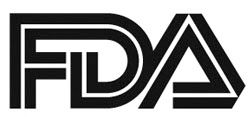FDA Approves Labeling Supplement on Prophylaxis for Neratinib in HER2+ Breast Cancer
The FDA has approved a labeling supplement for neratinib for the extended adjuvant treatment of patients with HER2-positive early-stage breast cancer. The labeling supplement adds safety information based on interim findings from the phase II CONTROL trial, which investigated the use of preventive strategies to reduce the incidence and severity of neratinib-associated diarrhea.

The FDA has approved a labeling supplement for neratinib (Nerlynx) for the extended adjuvant treatment of patients with HER2-positive early-stage breast cancer.1The labeling supplement adds safety information based on interim findings from the phase II CONTROL trial (NCT02400476), which investigated the use of preventive strategies to reduce the incidence and severity of neratinib-associated diarrhea.
In interim results from the ongoing CONTROL trial, antidiarrheal prophylaxis with loperamide plus budesonide reduced the discontinuation rate due to neratinib-associated diarrhea to 11% compared with 18% with the use of loperamide alone.
“We are pleased to be able to update the label for Nerlynx to include the data on the use of prophylactic loperamide plus budesonide,” Alan H. Auerbach, CEO and president of Puma Biotechnology, the company developing neratinib, said in a press release. “We believe FDA approval of the labeling supplement will help us to ensure that physicians and patients are better informed in selecting prophylactic therapy that may improve the tolerability of the drug.”
The open-label, sequential-cohort phase II CONTROL trial presented at the 2019 ASCO Annual Meeting explored the use of various prophylactic regimens and potential neratinib dose escalation.2Participants had HER2-positive stage I-IIIc breast cancer who had completed adjuvant trastuzumab-based therapy or stopped trastuzumab early due to adverse effects (AEs). The patients were treated with daily neratinib for 1 year. The study looked to the incidence of grade ≥3 diarrhea as the primary endpoint.
The trial initially tested high-dose loperamide prophylaxis given for the first 2 cycles of treatment, administered at 12 mg on days 1 through 14, 8 mg on days 15 through 56, and then as needed thereafter. The CONTROL trial was then expanded to include an additional 4 cohorts.
The prophylactic cohorts included loperamide alone (n = 137), budesonide and loperamide (n = 64), colestipol and loperamide (n = 136), and colestipol with loperamide as needed (n = 104), all with 240 mg/day of neratinib. There was 1 dose-escalation cohort included in the data which gave 120 mg/day of neratinib on days 1 through 7, followed by 160 mg/day on days 8 through 14, and 240 mg/day through the end of the year period with loperamide as needed (n = 60).
Each of the preventive strategies demonstrated a reduction in the rate of treatment-emergent grade ≥3 diarrhea; and no grade 4 diarrhea events were reported. Grade 3 diarrhea duration and frequency were also reduced across each cohort.
In the loperamide-alone arm, the rate of any-grade diarrhea was 79.6%, and the grade 3 rate was 30.7%. In the combination budesonide and loperamide prophylaxis arm, the any-grade rate was 85.9% and the grade 3 rate was 28.1%. With colestipol and loperamide prophylaxis, the rates of any-grade and grade 3 diarrhea were 83.1% and 20.6%, respectively, and when loperamide was given as needed only with colestipol, the rates were 95.2% and 31.7%, respectively. In the dose-escalation cohort, the rate of any-grade diarrhea was 95.0% and the rate of grade 3 diarrhea was 11.7%.
Two patients (1.5%) in the loperamide-only cohort required hospitalization. The rate of dose reductions was especially lower in the budesonide or colestipol-with-loperamide cohorts.
The FDA approved neratinib for the extended adjuvant treatment of adult patients with HER2-positive early-stage breast cancer following adjuvant trastuzumab (Herceptin)based therapy in July 2017. Additionally, the FDA granted the agent an orphan drug designation for the treatment of patients with breast cancer–related brain metastases in September 2019. A supplemental New Drug Application was also accepted for review by the agency in September for neratinib in combination with capecitabine for the treatment of patients with HER2-positive metastatic breast cancer following failure of ≥2 prior lines of HER2-directed therapy.
References
- FDA Approves Labeling Supplement for Puma Biotechnology’s NERLYNX® (neratinib) for the Extended Adjuvant Treatment of HER2-Positive Early Stage Breast Cancer [press release]. Los Angeles, CA: Puma Biotechnology, Inc.; October 2, 2019. https://bit.ly/2pH1Dt4. Accessed October 3, 2019.
- Barcenas CH, Hurvitz SA, Di Palma JA, et al. Effect of prophylaxis on neratinib-associated diarrhea and tolerability in patients with HER2+ early-stage breast cancer: Phase II CONTROL trial.J Clin Oncol.2019;37(suppl 15;abstr 548). doi: 10.1200/JCO.2019.37.15_ suppl.548.







